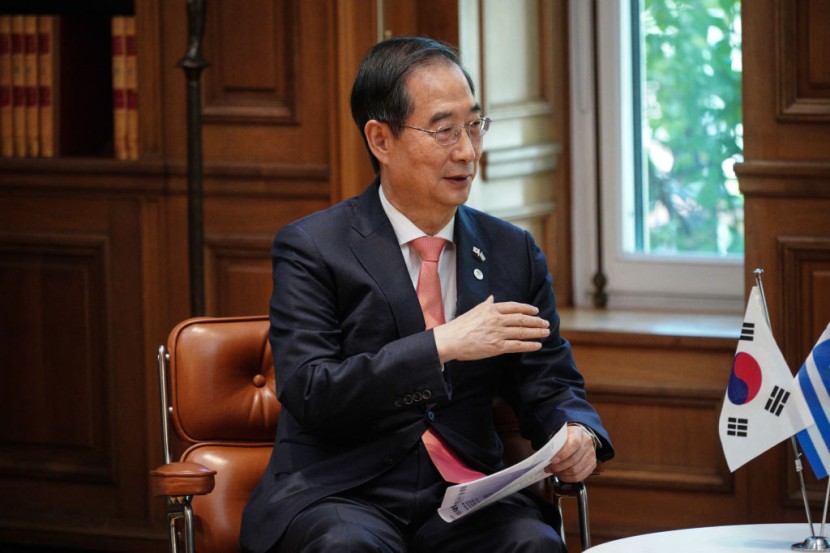
South Korea's liberal opposition Democratic Party (DP) won by a landslide in the country's general elections on Wednesday (Apr. 10), prompting senior ruling party politicians to reportedly offer their resignation following the defeat.
This also meant that Wednesday's election results were a huge political blow to President Yoon Suk Yeol, who still has three years left in office.
According to South Korea's Yonhap news agency, Prime Minister Han Duck-soo and the current cabinet have tendered their resignations in anticipation of losing power in parliament.
In a separate news conference, People Power Party (PPP) leader Han Dong-hoon said he would also step down to take responsibility for the defeat.
"I apologize to the people on behalf of our party, which wasn't good enough to win the people's choices," he said.
Yoon also said that he would "humbly" accept the election results—which was widely considered a midterm referendum on his presidency—and pledged to improve the country's economic status and reform state affairs.
"I will humbly accept the will of the people expressed in the general election and will strive to reform the administration and do my best to stabilize the economy and enhance people's livelihoods," Presidential Chief of Staff Lee Kwan-seop quoted Yoon as saying during a press conference.
Yonhap added that the DP-led by Lee Jae-myung-won 161 out of 254 directly contested seats, while the PPP only won 90. Including proportional seats, the DP and its junior coalition partners secured 175 seats, while the PPP and its coalition won 108 in the 300-member National Assembly.
However, the outcome left the bloc short of the 200 seats needed for a super-majority, which would have given it legislative powers to overturn vetoes and even impeach the president.
The remaining 12 seats were won by the newly formed Rebuilding Korea Party, led by former Attorney General Cho Kuk, and would serve as the parliament's crossbenchers.








